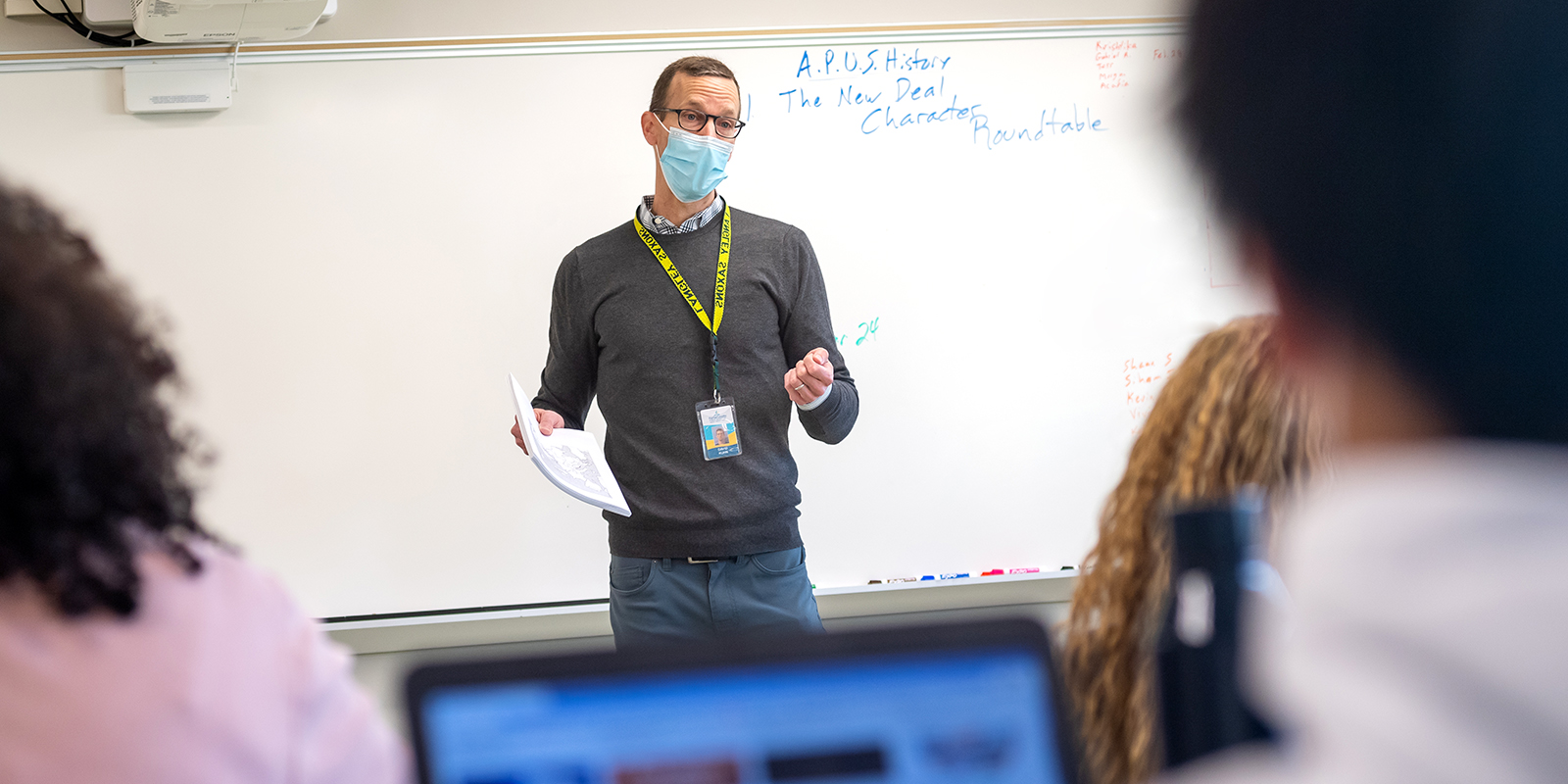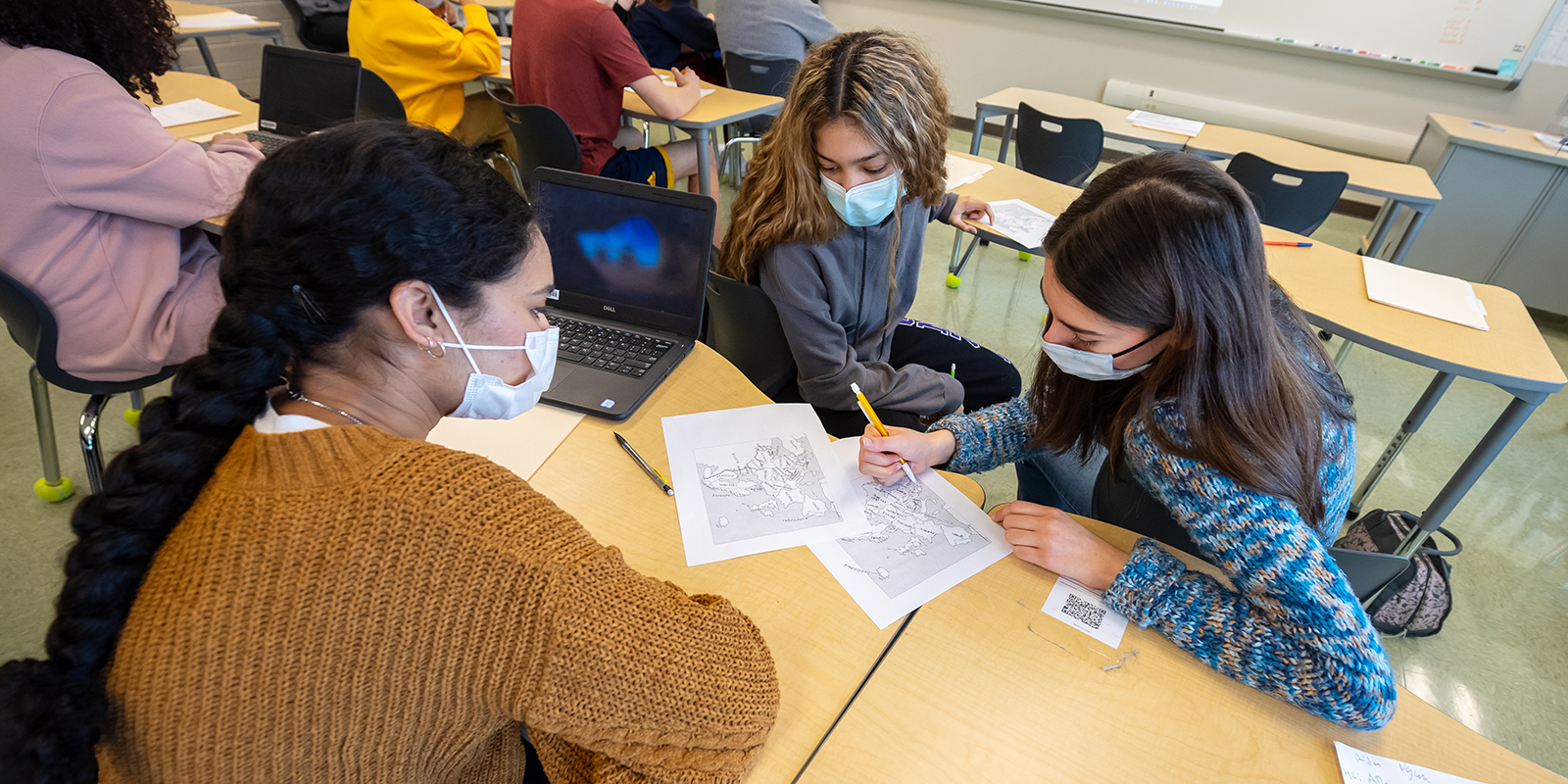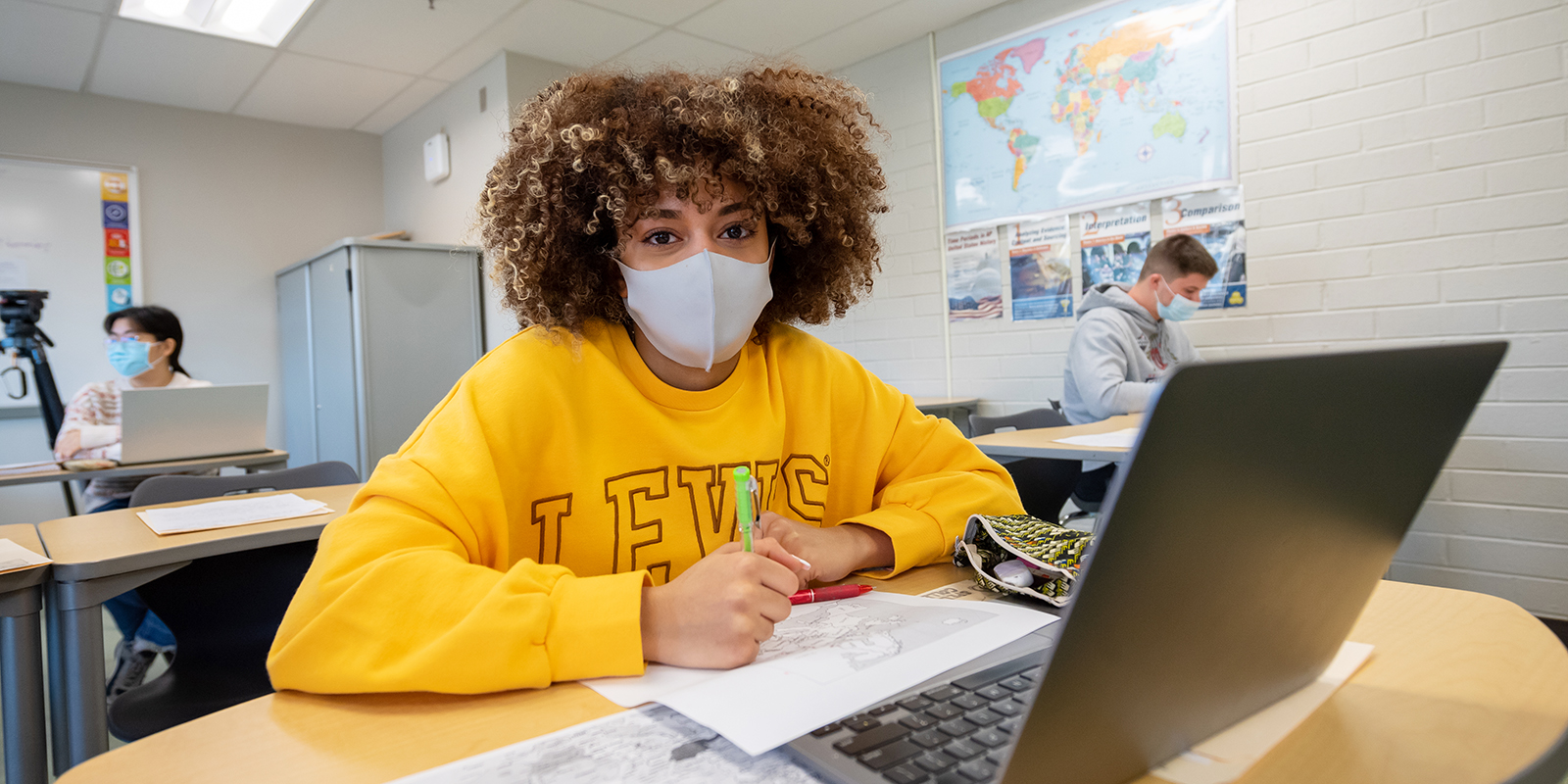Reliable Sources: Langley High Students Separate Fact from Fiction Amid Ukraine Conflict
Langley High School political science teacher David Kuhn says he knows “enough to get out of the way” when teaching students in real-time about the heart-breaking events in Ukraine.
Kuhn pushed students in his fall semester political science elective to study international relations theories on post Cold War conflict and varying perspectives on whether Russia was likely to invade the former Soviet state. Now, as tanks roll through Ukraine, he’s encouraging his class to process the devastating developments through the careful consumption of information.
“No teacher can read or know everything,” Kuhn says of his approach to teaching a “Current Affairs” elective course in a high school less than two miles from the U.S. Central Intelligence Agency headquarters. “I know enough to get out of the way, making sure students have the tools to research and determine things like what do we know and how do we actually know what is true?”

On Monday Feb. 28, five days after Russian leader Vladimir Putin announced a military operation in Ukraine, Kuhn’s students are trying to assess the current state of the conflict, as well as the effectiveness of U.S. and European sanctions on Russia and its wealthy elites.
“One of the first things we did was look at the reliability of different articles,” senior Katie Westerheim says. “Being able to read something, look at the news source, to make an informed opinion about whether we should trust it, these are skills we will be able to apply forward throughout our lives.”
One student raises his hand to express doubts that financial sanctions are having any real impact on Russian oligarchs, saying he has read that many of Russia’s wealthiest citizens have simply moved possessions like super yachts outside the reach of crackdowns by the Western nations.
“And where did you read that?,” Kuhn asks. The student sheepishly slumps down in his seat and admits: “I saw some things on Twitter” as his classmates collectively groan. He quickly notes he has seen similar reports in mainstream media like Reuters and CNBC as well, highlighting the need to cite reliable sources during class discourse.
Kuhn says this kind of open and free-wheeling discussion is how he aims to run the class, pushing students to debate and learn from each other as much as they do from him or a single news source.

“I always like to say, how do you know that?,” Kuhn says. “It is a whole other thing entirely when someone can say, well because I was there – and we have students in our class who are able to offer that perspective.”
Arshak Avetisyan, a Langley senior who lived in Moldova, contributes first-hand insight into long-standing tensions between Russia and post Soviet nations.
Arshak says while in Moldova, a former Soviet republic, his family usually spoke Russian with other people who knew Russian. It didn’t always go over so well. A soccer club didn’t want him to play when they learned he spoke Russian, an example of lingering hostility after the collapse of the Soviet Union, he says.
“Although there is no real war or shootings between them, you can still very much feel the tensions,” Arshak said.
Kuhn had students study The Clash of Civilizations, an essay by American political scientist Samuel Huntington from the 1990s that predicts the biggest sources of conflict in the post Cold War world will be based on people’s cultural and religious identities.
“We are taking theory in an academic sense, and seeing how it unfolds,” Kuhn says, as he directs students to outline on maps at their desks where Huntington expected divisions to occur among post Soviet states and where alliances have actually fallen.

“Learning about the theories while we live through the invasion is somewhat harrowing,” freshman Jayden Lee says. “It shows you can never be done learning about current affairs.”
Om Sharma, a Langley freshman, says he’s grateful for the time spent studying the lead-up to the invasion.
“It's not as basic or one-sided as many of us think,” Sharma says. “Many Ukrainians speak Russian, many want to side with Russia, and many want to side with America too, which is the main reason for conflict. One thing I’ve learned is that Russia wants to push back because it believes the West is getting too close.”
And for senior Katie Westerheim, Kuhn’s classroom environment is paying off at home too.
“This class has made me more knowledgeable, and more confident about participating in conversations when I hear people discussing things in complex ways,” she says. “We have a lot of conversations about politics in my family. Growing up, I am used to my parents being the ones to tell me things and teach me everything about the world. I’m now having conversations where I can tell them things.”
